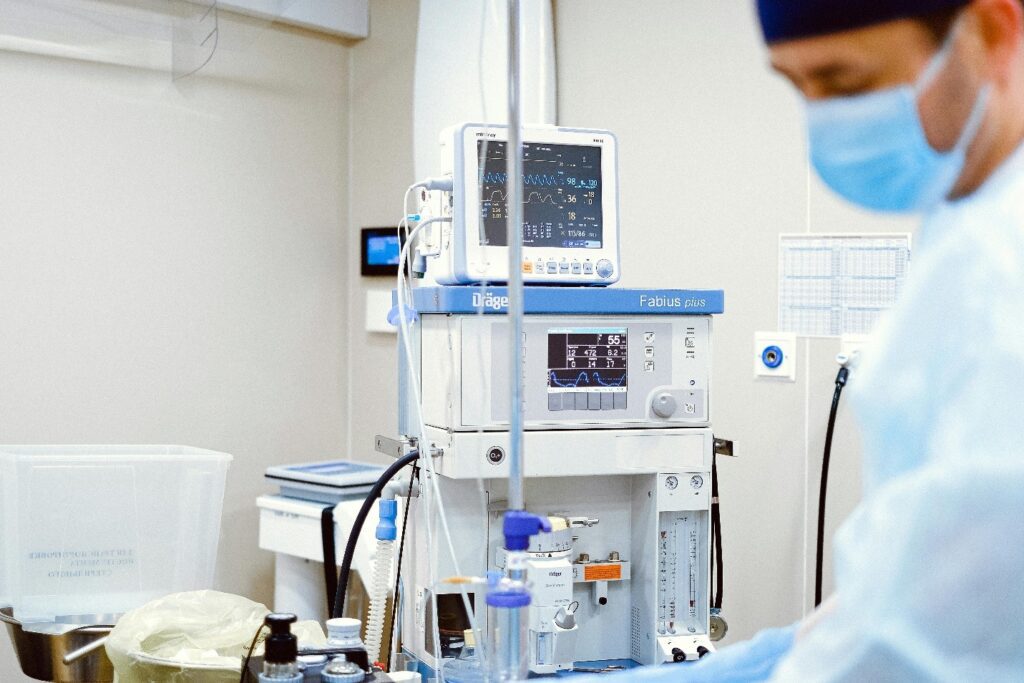From ICU to ER: Building Clinical Confidence for the Toughest Patient Cases

Working in an ICU or emergency room isn’t for everyone. It’s fast, intense, and full of unexpected turns. One minute, things are calm, and the next, you’re responding to a critical situation. That kind of pressure demands more than just basic training—it takes real confidence.
But confidence doesn’t happen overnight. It’s built through preparation, hands-on experience, and the right education. If you’re stepping into high-stakes clinical settings, these tips will help you feel more ready, more focused, and more equipped to lead the way.
Learn Through Realistic Simulations
One of the best ways to feel ready for complex scenarios is to practice them before they happen. High-fidelity simulations allow you to work through emergencies like cardiac arrest, sepsis, or respiratory failure in a safe, controlled space. These drills help you make decisions, correct mistakes, and learn from the process. With each round, your response becomes quicker and more accurate. Over time, this practice turns hesitation into confidence. When you finally face those high-pressure moments, your reactions feel natural—not forced.
Choose Specialized Graduate Training Through Advanced Programs
Foundational training helps you enter the field, but advanced education gives you the tools to grow and lead. For instance, many nursing professionals are choosing acute care nurse practitioner online programs, like the one offered by Youngstown State University, to build their confidence in high-acuity environments. One standout option is the MSN-AGACNP. The program is 100% online and CCNE-accredited, designed for working nurses who want to expand their role in ICU, step-down, or ER settings. YSU’s mission focuses on access, academic excellence, and community impact. They also offer programs in nursing education, healthcare management, and public health, all with flexible formats for today’s busy professionals.
Focus on Advanced Assessment Techniques
Your ability to catch subtle changes is essential to succeed in high-stress settings. Building skills in head-to-toe physical exams, neuro checks, and reading EKGs or labs can give you an edge. These tools help you spot concerns early and communicate findings clearly. The more comfortable you are with assessment, the faster you can act. A strong grasp of clinical cues also helps teams trust your judgment, which can lead to faster decisions and smoother care delivery.
Practice Critical Procedures Regularly
Confidence grows with repetition. Tasks like managing airways, inserting central lines, or caring for ventilated individuals may seem intimidating at first. But with guided practice, they become more routine. Taking time to refresh and rehearse these procedures—through labs, preceptorships, or simulations—helps you move past hesitation. The more often you do it, the less pressure you’ll feel when it counts. It’s not about perfection—it’s about being prepared enough to act without second-guessing.
Master High-Acuity Pharmacology
Working in critical environments means managing medications that require quick decisions and close monitoring. Understanding how to dose, adjust, and administer drugs like vasopressors, sedatives, and anticoagulants is essential. Learning when and how to react to side effects or drug interactions can make care safer and more effective. Building this knowledge doesn’t happen overnight. It takes ongoing review, case study discussions, and clinical exposure. The goal isn’t to memorize every drug but to be able to act with accuracy and confidence when it’s time to make a call.
Build Interdisciplinary Leadership Skills
Confidence doesn’t only come from clinical tasks—it also comes from knowing how to lead a team. In fast-moving environments, collaboration is key. You may work alongside physicians, respiratory therapists, social workers, and techs. Speaking clearly, delegating tasks, and managing updates during high-pressure situations improve the unit’s functioning. Leadership training helps you stay calm while others look to you for guidance. Even when things are hectic, that kind of control earns trust and improves outcomes.
Cultivate Resilience and Self-Care
The mental load of working in high-acuity care is real. Long hours, emotional cases, and tough calls can lead to burnout if you don’t care for yourself. Building confidence includes building mental strength. That means taking breaks, talking to colleagues, and knowing when to ask for help. Simple self-care habits—like proper rest and emotional check-ins—can go a long way. Resilience isn’t about never struggling; it’s about knowing how to bounce back and stay focused on doing good work.
Understand Ethics and Legal Responsibilities
You may face questions about consent, end-of-life care, or medical risk in complex cases. Knowing your legal and ethical responsibilities helps you make the right choices. It also protects your license and your reputation. Confidence grows when you’re sure of your boundaries. Training programs often include ethics and healthcare law to prepare you for these moments. When you’re grounded in professional standards, staying calm is easier—even when decisions are tough.
Stepping into high-pressure roles takes more than courage—it takes preparation, support, and the right education. From mastering assessments to choosing strong training options, every step you take builds real confidence. And that’s exactly what healthcare needs.
